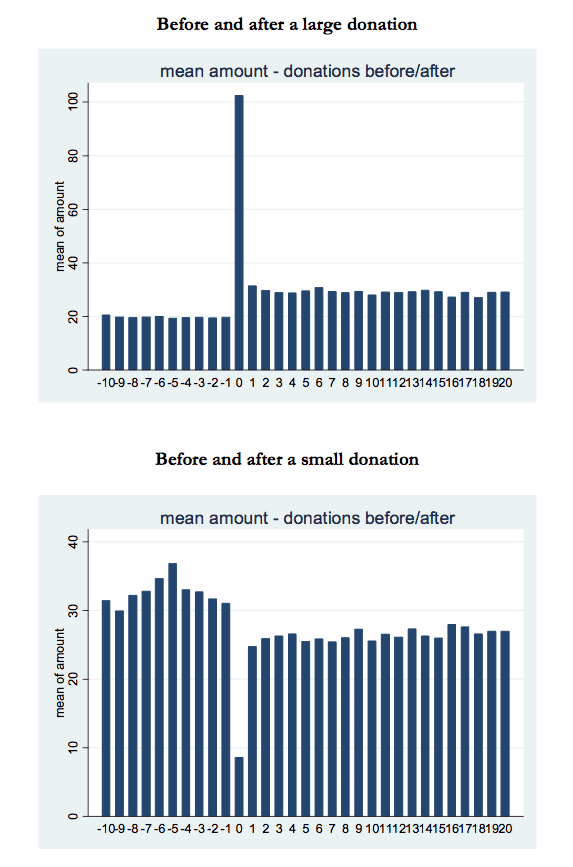The impact of peer-pressure on giving (or ask the stingiest people to give last)
Sarah Smith, Frank Windmeijer and Edmund Wright from the University of Bristol have just published an interesting paper on the impact of the 'peer-effect' on giving to charity.
We've seen from previous studies that knowing how much someone else has given to an appeal can have a major impact on the value of a subsequent donor's gift.
This research, undertaken on a pretty substantial sample, has emphasised just how powerful this effect can be - both positively and negatively.
The researchers studied online fundraising around the 2010 London Marathon — the biggest single fundraising event in the world. Using data from the two largest online fundraising sites – Just Giving and Virgin Money Giving – the researchers analysed 300,000 donations given to more than 10,000 fundraising pages distributed to more than 1,000 charities.
They found that donors were strongly influenced by how much other people had given. One donation of £100 typically shifts average donations from £20 to £30. The effects also appear to be fairly persistent, lasting for up to 20 subsequent donations after. Similarly, a single small donation to a website lowers the following donations by around £5.
When presented as a graph, you'll see that the impact is rather striking...

Profesor Sarah Smith summed up the key take away from the study...
“Looking at online fundraising also gives us some insight into the psychology of giving. It isn’t as simple as donors competing to be the most generous – or avoiding being the meanest. Instead, it looks like they are trying to find what they think is the right level for them personally, compared to their peers.”
I'd refer fundraisers to the advice of Benjamin Franklin on this point. He was a fantastic fundraiser, primarily because of the amount of time he put in to planning his appeals and researching his prospective donors.
The advice he gave then, is just as relevant today...
"In the first place I advise you to apply to all those whom you know will give something; next, to those whom you are uncertain whether they will give anything or not, and show them the list of those who have given; and lastly, do not neglect those whom you are sure will give nothing, for in some of them you may be mistaken."
When it comes to charity, as in every walk of life, people are influenced by what others are doing.
The full research paper can be downloaded here (PDF).
Tags In
The Essentials

Crack the Code to Regular Giving: Insights, Strategies, and a Special Giveaway!

‘Tis Halloween. Keep to the light and beware the Four Fundraisers of the Apocalypse!

Why do people give? The Donor Participation Project with Louis Diez.

A guide to fundraising on the back of a postcard

What does the latest research tell us about the state of fundraising?





